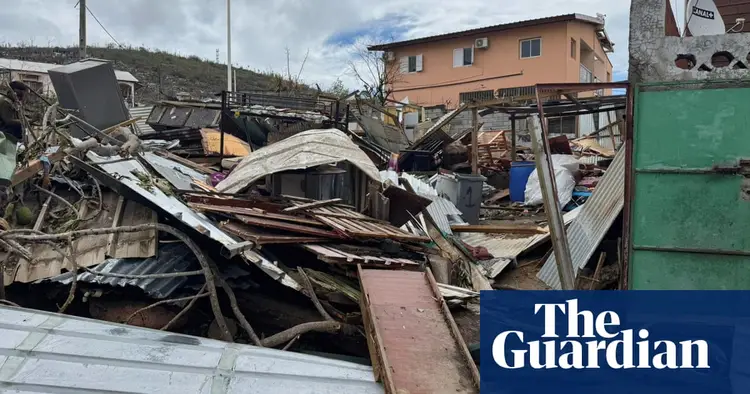Why was French territory of Mayotte so ill-equipped to deal with Cyclone Chido?

Cyclone Chido has unleashed winds exceeding 140mph, causing widespread destruction in Mayotte, a French overseas territory. As a result, around 100,000 individuals are now homeless and lacking access to clean water, and there are reports of hundreds, if not thousands, of fatalities.
Here’s a quick overview of the tiny group of islands and the reasons they are poorly prepared to handle what local officials have labeled “a tremendous disaster.”
Mayotte is a French overseas territory and department situated southeast of Africa, near the eastern side of the Indian Ocean islands known as Comoros, and approximately 185 miles (300 km) northwest of Madagascar.
Encircled by an expansive coral reef, the area consists of two primary islands, Grande-Terre and Petite-Terre, along with several smaller islands such as Mtsamboro, Mbouzi, and Bandrélé. It covers a land area of 144 square miles (374 square kilometers), which is more than three times larger than the city of Paris.
In contrast to Mayotte, the nearby volcanic Comoros islands—Grande Comore, Anjouan, and Mohéli—gained their independence from France in 1975. According to the most recent official figures, Mayotte has a population of nearly 321,000 residents.
The Comoros islands were initially inhabited by Arab sailors around a thousand years in the past. These seafarers brought enslaved individuals from Africa and founded several small sultanates across the islands, engaging in trade with East Africa and Madagascar.
France took control of the islands in 1843, established large sugar plantations, and expanded its power to officially claim the entire archipelago in 1904. By 1961, increasing demands for independence prompted Paris to grant a degree of self-governance.
While the other islands in the archipelago sought independence, the people of Mayotte chose to remain French, voting 63% in favor in a referendum in 1974 and an overwhelming 99% in 1976. Although Grande Comore, Anjouan, and Mohéli declared their independence in 1975, Mayotte continued to be a part of France.
Since gaining independence, Comoros has consistently asserted its claim over Mayotte. However, in 2011, Mayotte was officially designated as an overseas department, becoming the 101st department of France.
Mayotte is the least affluent region of France and depends significantly on financial support from the French government. According to data from the French authorities, 84% of the residents struggle below the poverty threshold, with over 40% getting by on less than €160 (£137) each month.
Nonetheless, when compared to Comoros, it is quite affluent. Thanks to the French social welfare system in place in Mayotte, many Comorians take significant risks each year to undertake the perilous journey across the sea in hopes of finding better living conditions. This wave of newcomers has led to considerable tension in the area.
According to the French national statistics office Insee, around 40% of homes on the islands are makeshift structures built from corrugated metal. Additionally, 29% of households in Mayotte lack access to running water, and slightly more than a third of the working-age population is unemployed.
The population of the islands, with an average age of 23 compared to 41 in mainland France, and nearly half being foreign nationals, has surged over six times in the last fifty years. It is currently expanding at about 4% annually.
In January, the president of the French parliament traveled to Mayotte, triggering weeks of protests and unrest related to gang issues and the migration crisis.
The islands have recently experienced their most severe drought since 1997, which has increased the frustration of the locals. Many demonstrators are also insisting that residence permits given to foreigners in Mayotte should allow them to travel to mainland France.
In February, Gérald Darmanin, who was the interior minister at the time, revealed a contentious proposal aimed at eliminating the automatic granting of citizenship based on birthplace in the islands. He claimed that this move would greatly decrease the appeal of the archipelago to potential migrants.
In April, Paris initiated Operation Wuambushu 2, deploying around 1,700 military police, law enforcement, and soldiers in an 11-week effort to combat illegal immigration and gang-related crime, as well as to remove hundreds of makeshift shelters from shantytowns.

















































